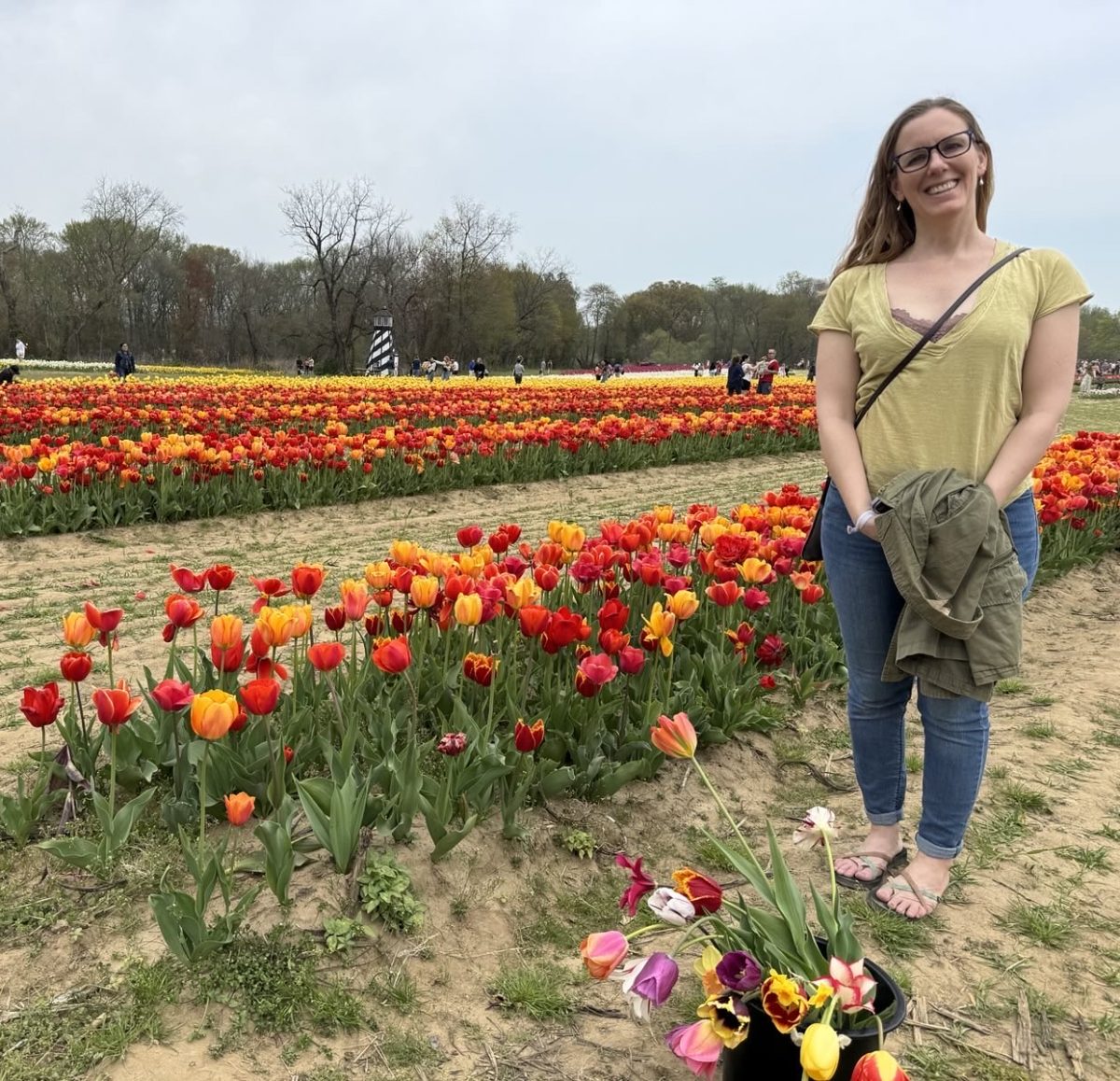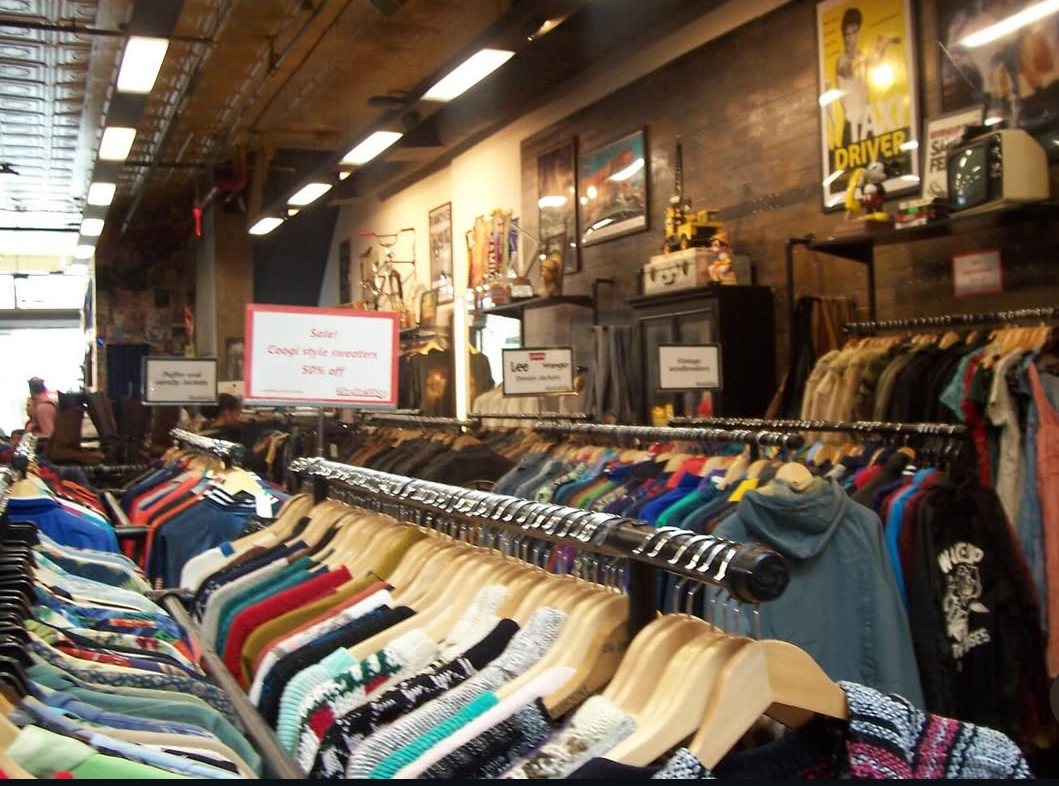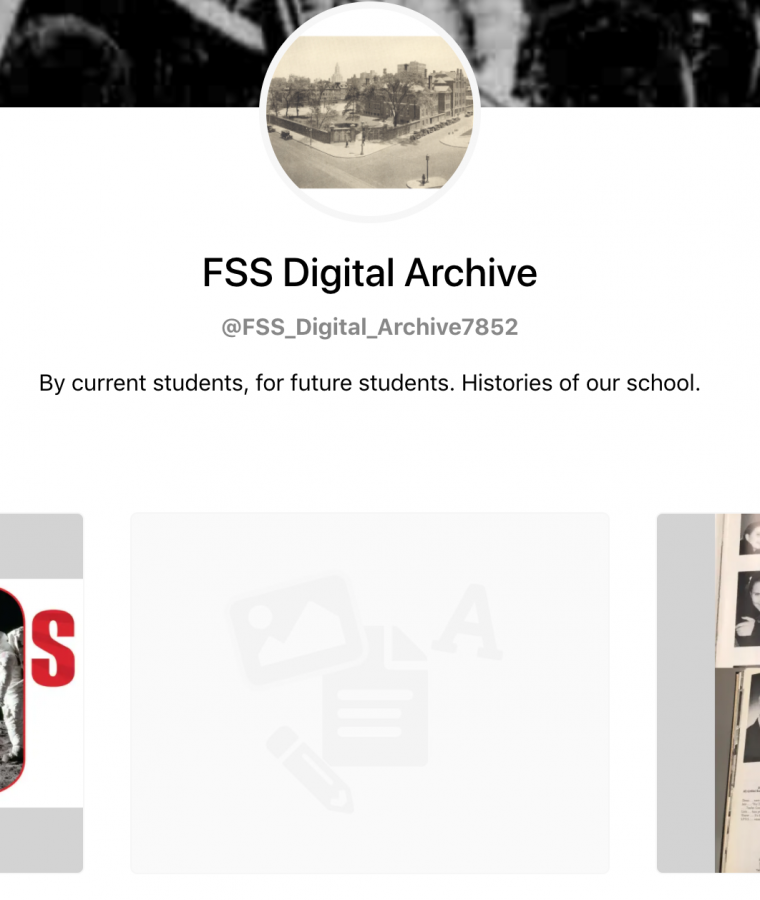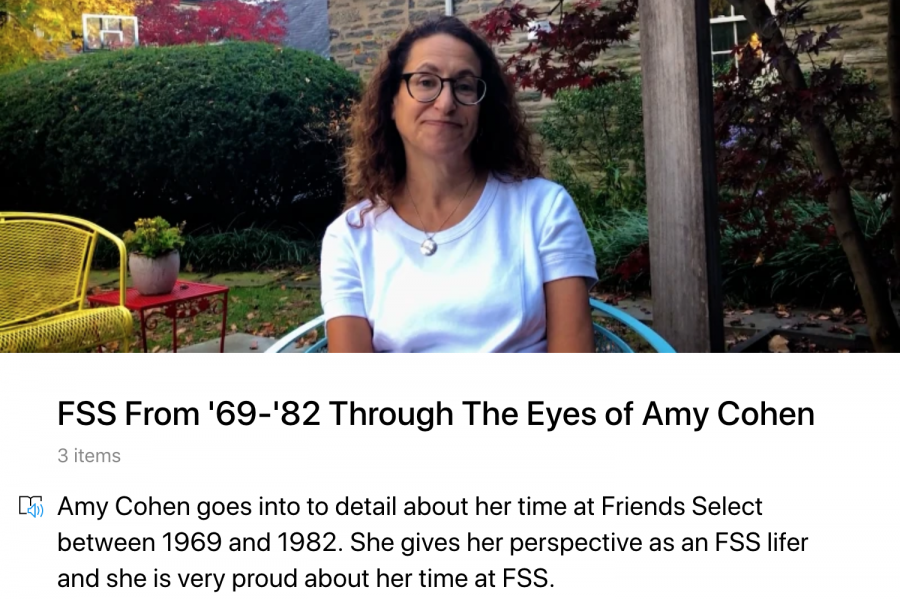9th Grade History Class Builds a Digital Archive
This fall, 9th grade students jumped headfirst into Upper School with an unorthodox major history project. Led by new 9th grade History Teacher Spring Greeney, every student in the class of 2024 has contributed to the “Build an FSS Digital Archive Project,” which was released to the greater community on Tuesday, December 15.
Friends Select’s digital archive seeks to provide images and files for every piece of the physical archive, which archivist Dick Hoffman has managed for 25 years. Dick’s archive is essentially a dimly lit closet hidden next to the hallway leading to the front door. Spring does not have access to the physical archive, and Dick, who describes himself as a “technological troglodyte,” has been at home with his wife since March 11th. Consequently, students have researched using interviews, yearbooks, and newspaper clippings. According to Spring, her classes’ undertaking would be “virtually impossible” without Dick’s contributions throughout the years.
When Dick began his work as an archivist, his “primary goal was to preserve and protect as much as possible of the publications, minutes, documents, books, and artifacts as [he] could.” Now, 9th grade students are replicating this mission with a modern twist, bringing Dick’s collection of important historical artifacts to a more accessible platform.
Students were granted the opportunity to develop their own research topics, and they used a litany of methods to accrue information. Most students chose to either research a particular decade at Friends Select, document the history of a specific student organization, or interview an alumnus and publish a transcript. About 15-20 hours of work was expected for each individual project.
The project has given students a hands-on opportunity to develop critical research skills, like asking informed questions and scouring primary source documents. Many students have turned to local newspapers, like the Philadelphia Inquirer and Philadelphia Tribune, for their research, finding anecdotes about the school’s integration and a competitive Cricket Club in the 19th century.
Hayden Wiltshire ‘24 and Noah Hall-King ‘24 produced a documentary on life at Friends Select from 1969-82. In the documentary, lifer Amy Cohen ‘82 provides insight into Friends Select’s policies, social culture, and political climate during the 1970s. “The process of making the documentary was pretty hard because we had to make a lot of calls as we were in the moment,” says Hayden. “We had to make choices like removing people at the last moment or having to change the layout of the video for it to have a better flow.”
Zoe Siegel ‘24, who interviewed 98-year-old Audrey Siegel Sabol ‘40, says that the skills she learned from the project “pushed my abilities and taught me a lot.” The interview was one component of Zoe’s larger research project on the 1940s at Friends Select. It was eye opening to get to hear from someone who actually went to the school in the 40s,” she says. “It also helped make all of the information I learned more real and personal.”
Other topics provided connections between the past and present at Friends Select. Nandi Bayard ‘24 focused on the history of Black Student Union (BSU), which was founded as the Black Student League in the 1970s. Nandi discovered that although Black students drafted their proposal in 1970, the board of directors did not approve the club’s formation until 1972 due to complaints from members of the school community. She also interviewed Director of College Planning Tracy Matthews and Assistant to the Upper School Director Deneen Young, who have both advised BSU since 2003. “One thing that I found that stuck out to me was seeing white students in BSU when looking in an old yearbook from 2010,” says Nandi.
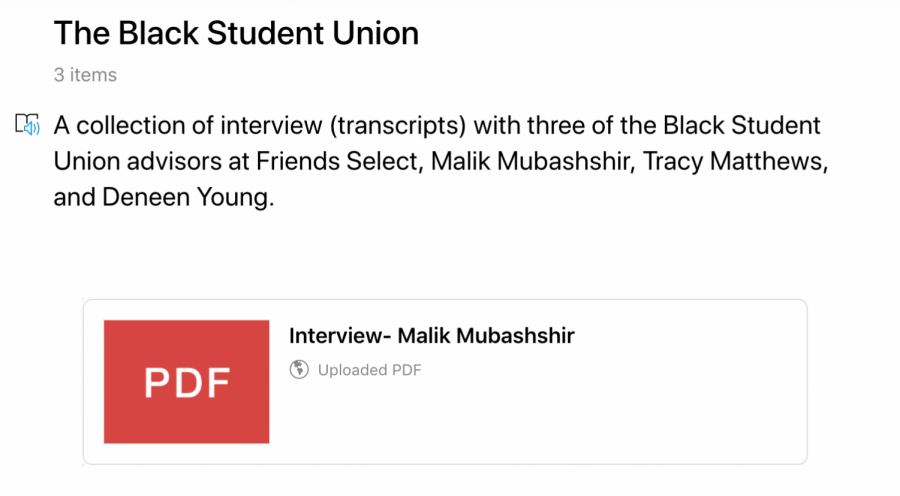
Spring hopes that teachers and students will eventually use the digital archive as a lens to study modern American topics, like partisan politics, the rise of social media, and protests against racial injustice. “In a larger 5 to 10 year plan, I think it would be a really cool direction to document what life is like in the present.” This fall, eight students documented their lives as high school students through journals, zines (small informational booklets), and TikTok. Spring wanted to offer these supplements to the classes’ more traditional historical research because “students are living through historic times,” she says.
Access the FSS Digital Archive here.




